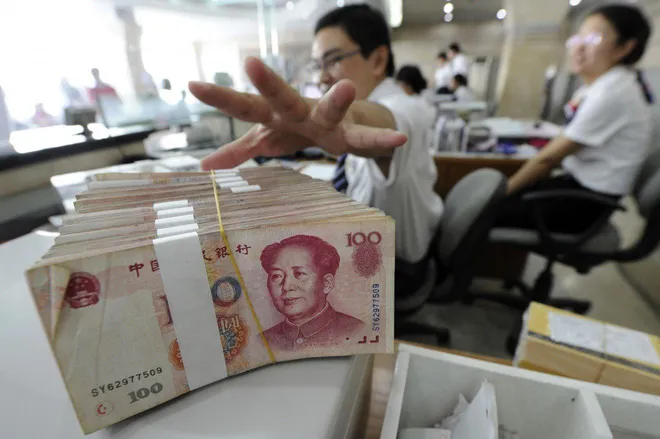
Just since the past month, worried savers have descended on three banks to withdraw funds amid rumors of cash shortages that were later dismissed as false. Over the weekend customers rushed to a bank in the northern Hebei province to take out money, prompting local regulators to publicly vouch for the soundness of its lenders as the police halted the run.
Confidence in the $43 trillion banking system is eroding among the nation’s more than 1 billion account holders, threatening a cornerstone of China’s rise into an economic powerhouse. After several bailouts and the first bank seizure in more than two decades last year, the coronavirus outbreak and its economic fallout have exacerbated an already shaky situation in the world’s largest banking system.
“The perception Chinese savers had of banks being risk free is changing even though in nearly all recent cases their deposits have been protected,” said Zhang Shuaishuai, a Shanghai-based analyst at China International Capital Corp. “Once a rumor like this spreads, it brings immediate liquidity risk to a bank.”
For decades, deposit-taking has provided a stable and low-cost funding base for China’s financial market, playing a key part in the rise of its economy to the second largest in the world. Chinese households hold about 90 trillion yuan ($13 trillion) of bank deposits, more than anywhere else in the world.
Regulators are now not only seeking to soothe nerves publicly, but are also raising the protection to preserve this cushion for banks. The run in Hebei came after authorities kicked off a pilot program to limit large transactions in the province.
The two-year program, which is set to be expanded to Zhejiang and Shenzhen in October to encompass 70 million people, would require retail clients to pre-report any large withdrawals or deposits of 100,000 yuan ($14,000) to 300,000 yuan.
The China Banking and Insurance Regulatory Commission on Saturday again warned that lenders are facing a surge in bad debt as the economy sputters at its slowest pace in four decades.
While stopgap measures, which have included rolling over debt and delaying loan payments, have limited an immediate surge in bad debt, the regulator said the fundamental issues of poorly managed banks and the deteriorating ability of companies and individuals to repay loans are still far from solved. They are also asking banks to forgo 1.5 trillion yuan in profit this year by offering lower lending rates, cutting fees, deferring loan repayments, and granting more unsecured loans to small businesses to help the economy.
Authorities have more than 3,000 banks to oversee, most of which are small, rural entities without ready access to capital. In another unprecedented move, China now plans to allow local governments to use about 200 billion yuan from bond sales to help smaller banks replenish their capital.
The industry overall may suffer an 8 trillion yuan increase in bad debt this year, S&P Global has estimated. Small banks are facing a $349 billion shortfall in capital, according to an analysis by UBS Group AG. Putting that figure at only $50 billion, the regulator said the shortfall could mean slower profit growth or even sliding profits at some institutions.
Corporate bonds are also suffering, adding further pressure on banks. About 80 billion yuan worth of Chinese bonds defaulted on and offshore so far this year, the most in at least three years, according to data compiled by Bloomberg.
Squashing Rumors
In the most recent episodes, authorities stepped in last month to halt banks runs at two local lenders in Hebei and Shanxi. On July 11, savers rushed to withdraw money from Hengshui Bank Co., also based in Hebei, before the police put a stop to it.
In response, the local offices of the People’s Bank of China and the CBIRC said in a joint statement that Hengshui Bank and its branches are legitimate financial entities where any savings under half a million yuan are protected under China’s deposit insurance regulation. They reassured depositors that their money is safe and urged them not to “blindly” withdraw savings.
Police took people into custody, issuing reprimands to those spreading rumors, according to the statement.
Hengshui Bank didn’t immediately respond to calls and emails seeking a comment.
More broadly, regulators have been working on a plan since last year that would see more small banks merge to shore up their strength, but so far little of that effort has come to fruition.
Investors were spooked last year when authorities seized inner-Mongolia-based Baoshang Bank Co., in the first state takeover since 1998. They have since engineered rescues by having state-run entities inject capital into other struggling lenders such as Bank of Jinzhou Co.
“China has too many banks,” said Zhang. “Quite a few of them are weak in corporate governance and earnings capacity. A better option is to take a more proactive approach to restructuring those regional banks.”




















